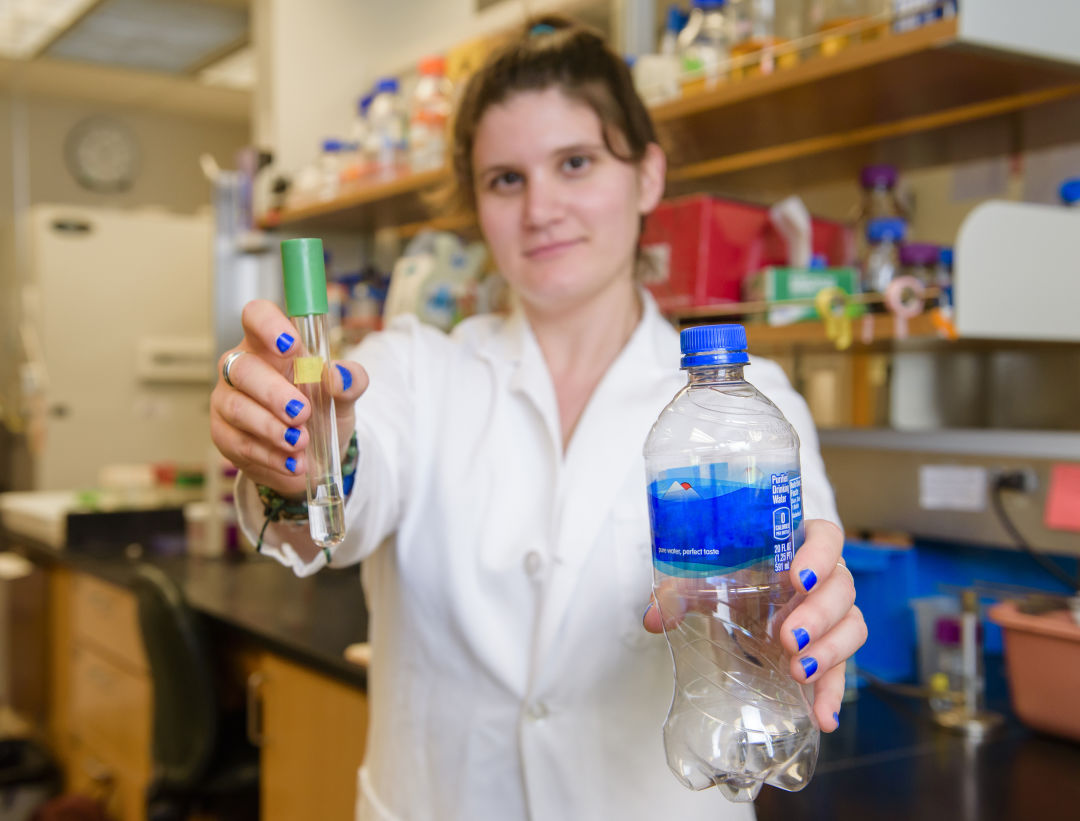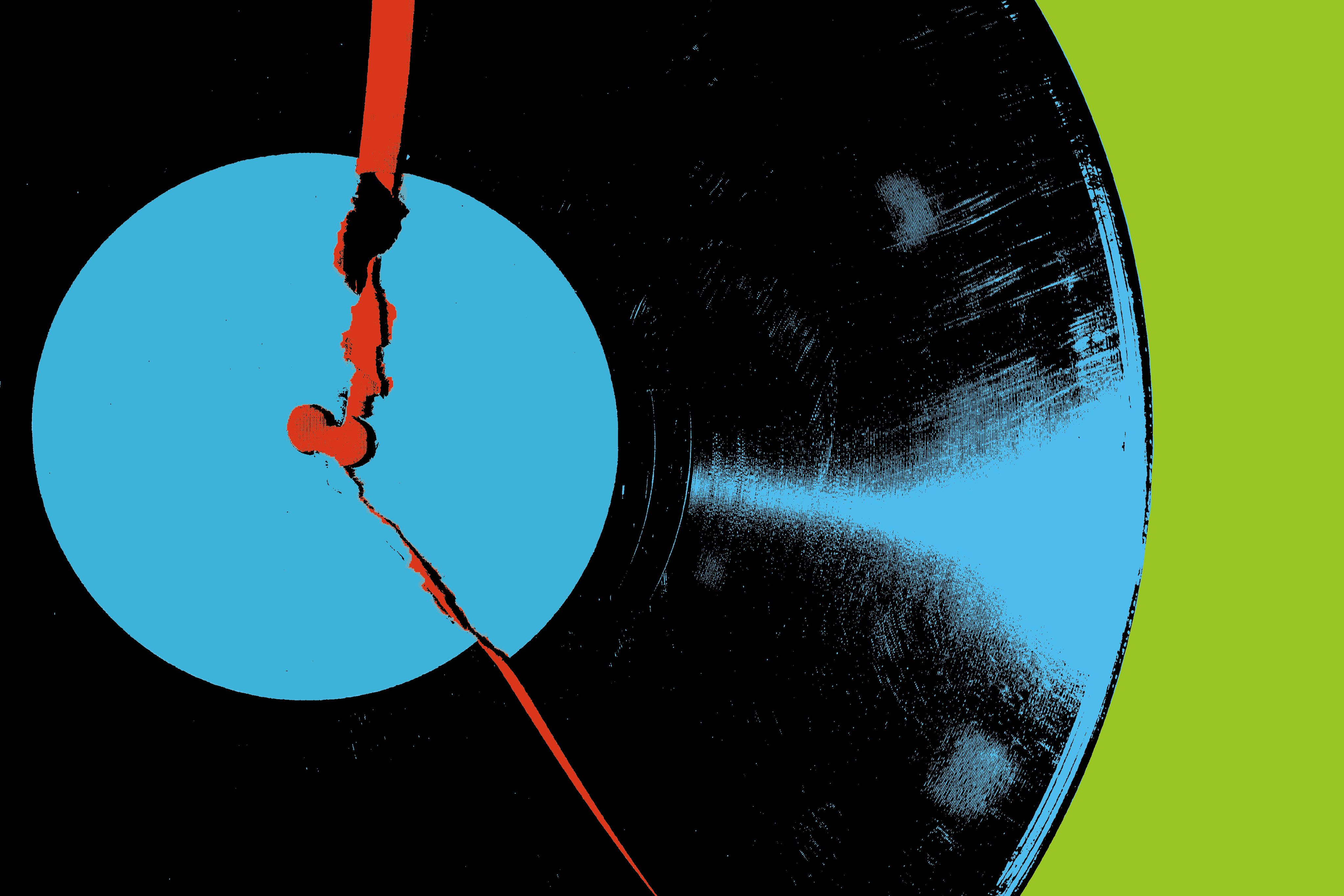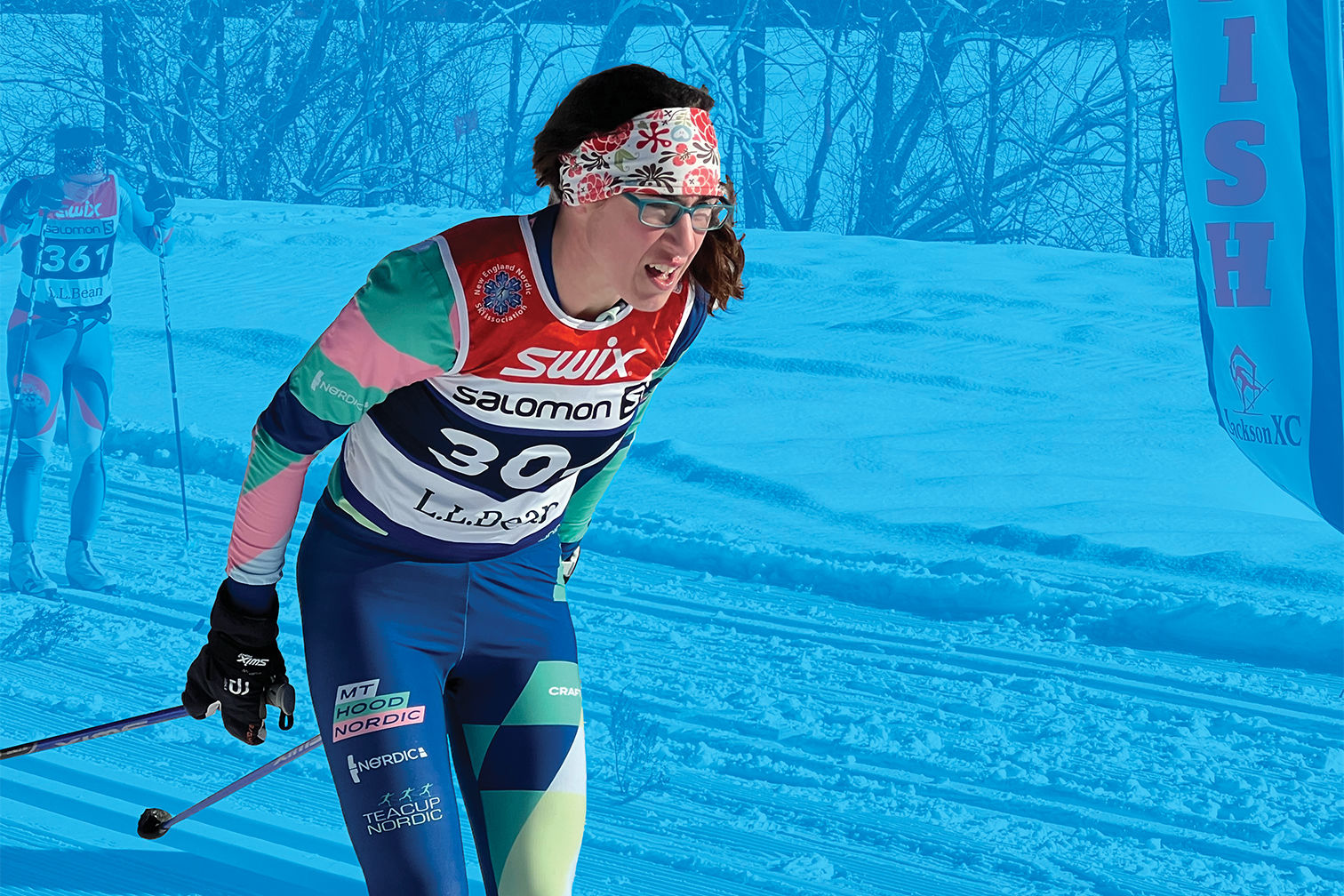A Reed College Grad Discovers Plastic-Eating Microbes

Morgan Vague in the lab
Image: Courtesy Nina Johnson
Reed College student Morgan Vague was in search of microbes that eat man-made scourges—plastic and other pollutants—for a biology course. She weighed potential destinations.
“I started thinking, OK, if there are bacteria that can break down plastics and pollutants, they’re probably going to be in highly polluted areas,” she says. Following that logic, Vague used a visit to her home state to gather some Texan soil from notoriously polluted Galveston Bay. She smuggled it back through airport security in a zip-top bag labeled “nostalgic beach sand.” Back on campus, she found more than 300 strains of microbes in the sample. An enzymatic test narrowed the ones that might consume plastic down to three, which she tested on plastic water bottles. When she recorded molecular-level degradation of the plastic, Vague felt a rush of adrenaline.
“So much of science is experimentation,” says Vague, who graduated this year. “You know, you have ideas based off of what sounds reasonable. But nature is a very tricky thing, so you don’t always know what’s going to work. When I saw colonization I just freaked out. I think I texted my mom at work.”
The next step: finding a way to speed up degradation for industrial use. “We know they’re out there,” she says, “so we might as well make them work for us.”




